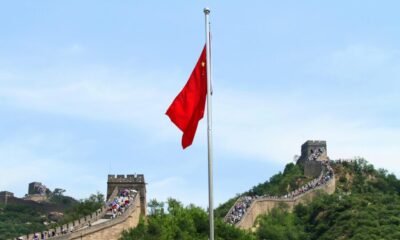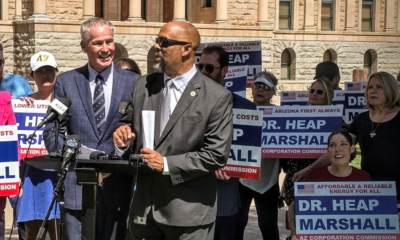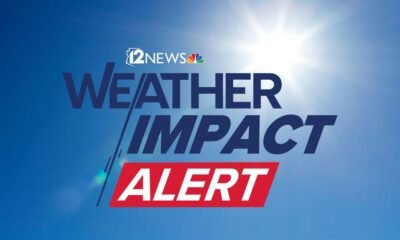Business
US Families Brace for Spike in Back-to-School Expenses as Tariffs Take Their Toll

As the back-to-school season approaches, American families face higher costs for new clothing and footwear. Recent tariff policies implemented by the Trump administration are expected to significantly impact the prices of essential items like sneakers and jeans.
Recent data from the American Apparel & Footwear Association indicates that approximately 97% of clothing and shoes sold in the U.S. are imported, primarily from Asian nations. Major retailers such as Walmart, Gap Inc., and Nike have extensive supply chains reliant on these regions.
The tariffs, designed to address trade imbalances, impose considerable taxes on imports from countries like China, Vietnam, and Bangladesh. Tariffs on Chinese goods are set at a staggering 54%, while those from Vietnam and Cambodia reach 46% and 49%, respectively.
Manufacturers in the garment industry typically pass on increased costs to consumers. According to Steve Lamar, president and CEO of the American Apparel & Footwear Association, prolonged tariffs will inevitably lead to higher retail prices.
For instance, the Footwear Distributors and Retailers of America estimate significant price hikes on popular shoe models. Work boots from China might increase from $77 to $115, with running shoes from Vietnam potentially rising from $155 to $220. Families purchasing children’s shoes could see prices soar from $26 to $41.
The surge in costs follows years of relatively stable apparel prices, which have remained consistent since the 1990s due to free trade agreements and competition among discount retailers. However, rising inflation in other sectors has made consumers more sensitive to price changes in clothing.
Furthermore, U.S. companies have actively sought alternatives to Chinese manufacturing amidst trade tensions and ethical concerns. Brands like Lululemon now source a significant percentage of their products from countries such as Vietnam and Cambodia.
While some retailers may benefit from having strong negotiating power with suppliers, others, especially those heavily reliant on Asian imports, may struggle to adapt. Off-price retailers such as Burlington and TJX Companies might mitigate the impact better than brands like Gap Inc. or Urban Outfitters.
Industry analysts predict that these tariffs could evolve into a consumer tax, further widening the income gap in America. As companies grapple with new sourcing strategies, questions arise about the future of apparel production in the country.


















